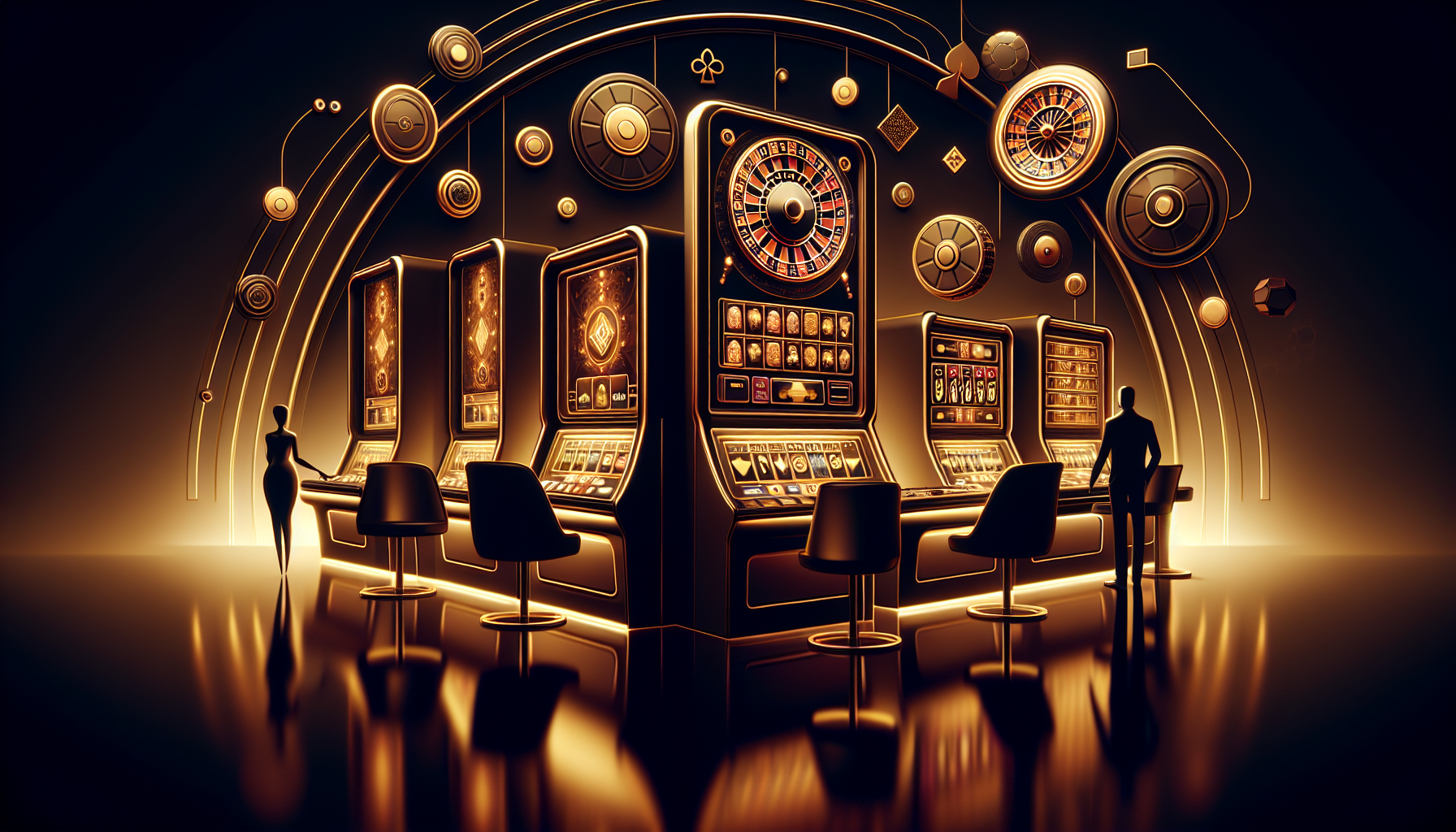
First off, let’s talk about why we love gambling so much. Casinos are designed to keep you engaged, offering sensory excitement that can’t be found elsewhere. The thrill of the win, the suspense of the bet, the lights, sounds, and the social vibe—all make for a fantastic experience. The rush you get from placing a bet and the anticipation as the roulette wheel spins or cards are dealt creates a natural high.
However, there’s a flip side to this exhilarating experience. The very elements that make gambling enticing can also make it addictive. And when something becomes addictive, it can wreak havoc on your mental health.
The thrill of gambling can be irresistible — the spin of a roulette wheel, the flip of a card, or the roll of the dice, the excitement and anticipation can draw you in. But what happens when a bit of fun becomes something more dangerous?
The Excitement Factor
Ever notice how you feel a rush every time you play a game in a casino or place a bet online? That surge of anticipation is because gambling triggers the brain’s reward system. The promise of a potential win releases dopamine, the feel-good neurotransmitter. It’s basically our brain’s way of telling us, “Hey, this feels amazing. Let’s do it again!”
But that pleasure can easily turn into an obsession, making us chase the high over and over again. And that’s where it can start to get tricky.
Social Aspects
Gambling it’s also a social activity. Casinos, online platforms, and friendly poker games are often filled with laughter, camaraderie, and social interactions. This can be great for those seeking connection but can also fuel a compulsive habit. The problem arises when the social aspect begins to justify frequent gambling, overshadowing healthier social activities.
Risks to Mental Health
Initially, gambling can feel like a stress reliever, a mini-vacation from daily life pressures. But when it evolves into an addiction, the consequences can be severe. Constant anxiety over losses, an overwhelming urge to gamble more to recover money lost — these can spiral into a perpetual state of emotional distress.
Fear of losing, coupled with the euphoria of the occasional win, can create emotional highs and lows, often leading to feelings of guilt, shame, and helplessness. The emotional rollercoaster can overshadow everyday joys, making life feel less fulfilling.
There’s no getting around it: gambling costs money. The financial strain can be enormous, sometimes resulting in catastrophic debt and financial ruin. This financial stress exacerbates the emotional burden, leading to a cycle of desperation and poor decisions.
The looming presence of debt can lead to sleep problems, anxiety disorders, and even depression. The pressure to recover losses can push people towards more gambling, hoping for that one big win to clear their financial slate.
Relationships can take a serious hit when gambling becomes a problem. Trust issues arise when one partner hides their gambling habit or lies about the extent of their losses. Family members and friends may feel neglected or resentful, leading to social isolation for the gambler.
Emotional distance, fights over finances, and broken promises can deteriorate even the strongest relationships. The impact is often felt by the entire family, particularly children who may struggle to understand the changed dynamics.
Recognizing the Signs of Problem Gambling
If you find yourself constantly thinking about gambling — planning the next trip to the casino, fantasizing about winning big, or feeling restless when you can’t gamble — you might be crossing into dangerous territory.
Frequent daydreams about betting or constantly discussing gambling strategies can be key indicators of a developing problem. This preoccupation can overshadow other important aspects of life, like work, family, and personal health.
It starts innocently — small bets here and there. But soon, you find yourself needing to wager more to feel that same rush. Increasing bets to achieve the desired level of excitement is a huge red flag. This behavior can quickly lead to mounting losses and even more significant financial strain.
Losing money is never fun, and the impulse to get it back can be overwhelming. “Chasing losses” is gambling’s deadly trap. More often than not, it leads to even greater losses and deeper financial woes. Understanding that losing is part of gambling and walking away is a vital skill that problematic gamblers often lack.
If you’re hiding financial statements, lying about your expenditures, or borrowing money without specifying why, these are glaring warning signs. Financial secrecy often accompanies problem gambling and can deepen financial crises as well as worsen trust issues in relationships.
Steps to Take If You Recognize These Signs
Self-Assessment
The first step is acknowledging the problem. Self-assessment quizzes are available online and can guide you in pinpointing where you fall on the gambling spectrum. Being honest with yourself is essential — denial only worsens the situation.
Seek Professional Help
Counselors and support groups specialize in gambling addiction. Organizations like Gamblers Anonymous offer the chance to talk openly with others who understand your struggles. Therapy can help tackle the root causes of your gambling behavior, offering strategies to manage urges and rebuild a healthier lifestyle.
Financial Counseling
Meeting with a financial counselor can help you get your finances back on track and develop a plan to pay off debts. Financial stability can reduce the stress and anxiety associated with gambling problems, providing a clearer path to recovery.
Build a Support System
Don’t underestimate the power of a support system. Friends and family can offer emotional support and help hold you accountable. Building a network of people who understand your situation can make the journey to recovery a lot less lonely.
Healthy Alternatives to Gambling
Redirecting your focus to new or forgotten hobbies can help fill the void left by gambling. Whether it’s sports, painting, or reading, find something that brings you joy and takes your mind off gambling.
Physical activity is a fantastic stress reliever and releases those feel-good endorphins. If you prefer hitting the gym, jogging in the park, or practicing yoga, staying active can help you manage stress and emotional ups and downs.
Practicing mindfulness and meditation can lead to emotional regulation and stress management. Learning to stay present and grounded can reduce the compulsive urge to gamble as a means of escaping problems.
Signs of Problem Gambling
- Increased Spending: if you notice that you’re spending more and more money on gambling, it’s a red flag.
- Chasing Losses: compulsively trying to win back lost money is a clear sign that gambling is becoming problematic.
- Preoccupation: Constantly thinking about gambling or planning your next trip to the casino is another indicator.
- Lying and Secrecy: if you’re being dishonest about your gambling habits or hiding your activities, it’s a surefire sign of trouble.
- Neglecting Responsibilities: failing to fulfill obligations at work, school, or home because of gambling is a significant warning sign.
Maintaining a Healthy Relationship with Gambling
Okay, we’ve outlined some pretty heavy stuff, but don’t worry. There are ways to enjoy gambling responsibly and avoid its potentially harmful effects.
Set Limits
Decide beforehand how much money and time you’re willing to spend. Stick to these limits no matter what, and don’t chase losses.
Be Mindful
Keep an eye on how gambling makes you feel. If you begin to feel stressed, anxious, or depressed, it might be time to step back and reassess your habits.
Balance with Other Activities
Gambling shouldn’t be your only form of entertainment. Ensure that you have other hobbies and activities that can occupy your time and mind.
Seek Support
If you have a feeling that your gambling is out of control, you should seek help. There are a number of resources that are available for help and support.
Resources for Help
It’s great to be aware and proactive, but sometimes we all need a little help. If you or someone you know is struggling with problem gambling, these resources can offer invaluable support:
- National Gambling Hotline. Most countries have a dedicated hotline for gambling-related problems. In the US, the number is 1-800-522-4700.
- Gamblers Anonymous. This organization offers local meetings and support groups for individuals struggling with gambling addiction.
- Therapists and Counselors. Many mental health professionals specialize in addiction and can provide tailored counseling and psychotherapy.
- Online Support Groups. Websites like Reddit and specialized forums can offer community support and shared experiences from others who have faced similar challenges.

